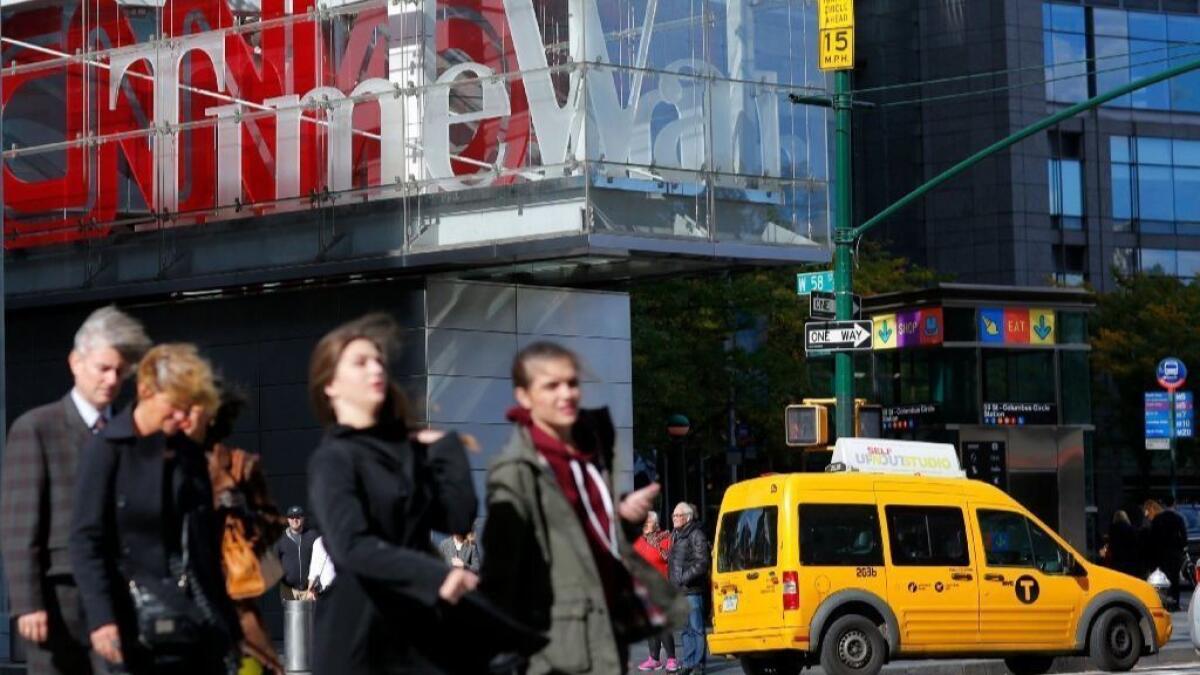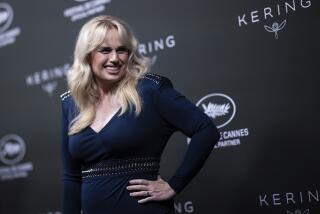Former DramaFever executive sues Warner Bros. alleging anti-Asian discrimination

After several years consulting with start-ups, in 2015 Chung H. Chang landed his “ideal” job: vice president of finance at DramaFever, a digital streaming service specializing in Korean and East Asian media for Western audiences.
In less than five years, the New York-based channel that launched in 2009 was broadcasting hundreds of programs in dozens of countries. Then, in 2016 Warner Bros. acquired the channel and announced plans to “rapidly enhance and grow” the service as part of a new robust streaming effort, under its Digital Labs division.
Barely two years later, however, Warner Bros. shut down DramaFever. Chang found himself not only unemployed, but also, he alleges, falsely blamed by one of the most powerful media companies for “significant legal liabilities” the company potentially faces for failing to properly license music used on the programs hosted by Digital Labs.
On Wednesday, Chang filed a wrongful-termination lawsuit in the Southern District of New York against Warner Bros, accusing the studio of anti-Asian bias and retaliation.
Chang, who headed Digital Labs’ finance organization, said he had no responsibility for the division’s content licensing, nor did he participate in assessing legal issues.
DramaFever was shut down last October “in order to obscure the scope” of Warner Bros.’ infringement of intellectual property rights, the suit states.
Further, it alleges that the studio used “the closure of DramaFever to mask its discriminatory conduct,” terminating “every high-level Asian American employee of DramaFever, including Plaintiff Chang, while sparing high-level White employees.”
“The claims in this case are without merit,” WarnerMedia spokesman Paul McGuire said in a statement. “We will vigorously defend ourselves and we expect to prevail.”
The allegations are surprising given that they involve the studio that installed the first Asian American chief, Kevin Tsujihara, and produced last year’s “Crazy Rich Asians,” touted as a game changer for its all-Asian cast and director. Warner also was the first major Hollywood studio to adopt a companywide policy to increase diversity.
The lawsuit comes at a delicate time for the studio. AT&T acquired Time Warner Inc. last year and this week announced a sweeping reorganization of its WarnerMedia unit that is expected to bring a round of layoffs and other cost-cutting measures.
Chang’s lawsuit describes an environment in which Warner Bros.’ white leadership freely made racially charged comments, viewed Asian Americans as “outsiders” and “foreign,” and where a “culture of permissiveness allowed discrimination against Asian Americans to go unchecked.”
Patty Hirsch replaced co-founder Seung Bak as CEO of DramaFever last April. According to the suit, Chang raised his concerns about racial animosity with Hirsch.
Such concerns included comments made during a meeting at which an unidentified Warner Bros. media executive expressed surprise that the four Asian American members of the DramaFever team did not have accents, saying it was “ ‘amazing how good their English was.’ ”
At the conclusion of another meeting, a Warner Bros. executive offered to give the Asian American participants a “good American hug.”
Chang contends that both Warner Bros. and Hirsch expressed a preference for white executives, repeatedly saying that the company wanted “people who could sell” in executive roles. When Chang asked Hirsch to clarify what she meant by this, she identified two vice presidents who are both white, he asserted.
Chang alleges that shortly after he raised his concerns about the comments he was stripped of many of his work responsibilities. Hirsch said she wanted to “revisit everything after taking the reins at DramaFever” while not taking “any substantial duties away from white vice presidents” at the company, the suit states.
Hirsch declined to comment, Warner Bros. said, but its spokesman.
Chang’s New York attorney Veronica S. Jung says that what began as a straightforward employment discrimination case quickly turned ugly, with her client being intimidated into giving up his rights to file a civil rights claim.
According to the suit, Warner Bros. attempted to deter Chang from filing, saying that it had “identified its own claims” against Chang and would pursue them if sued.
The lawsuit outlines a course of intimidation against Chang, including “fraudulently inducing” his attorneys to attend a “bad faith” mediation over the dispute. As well, the suit contends that Warner Bros. is seeking to compel arbitration in order to “keep his legal claims of civil rights violations and violation of copyright laws out of the public eye.”
After Chang filed notice, Warner Bros. launched an investigation and had an outside law firm interview former DramaFever colleagues under “false pretenses,” his suit alleges.
The suit characterizes those interviews as an “interrogation,” the purpose of which “was for Warner Bros. to build an unsubstantiated legal case against Chang.”
In a press statement last October, Warner Bros. announced that it had shut down DramaFever, citing “business reasons.”
Chang’s lawsuit claims that it did so to avoid opening itself up to legal exposure, noting that in January the company shut down Machinima, another of its content platforms, making its video content private, and “scrubbed the internet of all of its content given the concern that much of its content infringed the copyrights of others.”
“Warner Bros.’ decision to retaliate against Mr. Chang by scapegoating him was a huge miscalculation,” Jung said, “and it will cost Warner dearly.”
More to Read
Inside the business of entertainment
The Wide Shot brings you news, analysis and insights on everything from streaming wars to production — and what it all means for the future.
You may occasionally receive promotional content from the Los Angeles Times.










